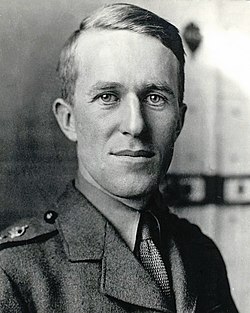T.E. Lawrence Quote
The Howeitat spread out along the cliffs to return the peasants' fire. This manner of going displeased Auda, the old lion, who raged that a mercenary village folk should dare to resist their secular masters, the Abu Tayi. So he jerked his halter, cantered his mare down the path, and rode out plain to view beneath the easternmost houses of the village. There he reined in, and shook a hand at them, booming in his wonderful voice: 'Dogs, do you not know Auda?' When they realized it was that implacable son of war their hearts failed them, and an hour later Sherif Nasir in the town-house was sipping tea with his guest the Turkish Governor, trying to console him for the sudden change of fortune.
The Howeitat spread out along the cliffs to return the peasants' fire. This manner of going displeased Auda, the old lion, who raged that a mercenary village folk should dare to resist their secular masters, the Abu Tayi. So he jerked his halter, cantered his mare down the path, and rode out plain to view beneath the easternmost houses of the village. There he reined in, and shook a hand at them, booming in his wonderful voice: 'Dogs, do you not know Auda?' When they realized it was that implacable son of war their hearts failed them, and an hour later Sherif Nasir in the town-house was sipping tea with his guest the Turkish Governor, trying to console him for the sudden change of fortune.
Related Quotes
About T.E. Lawrence
Lawrence was born in Tremadog, Carnarvonshire, Wales, the illegitimate son of Sir Thomas Chapman, an Anglo-Irish landowner, and Sarah Junner, a governess in Chapman's employ. In 1896, Lawrence moved to Oxford, attending the City of Oxford High School for Boys and read history at Jesus College, Oxford from 1907 to 1910. Between 1910 and 1914, he worked as an archaeologist for the British Museum, chiefly at Carchemish in Ottoman Syria.
After the outbreak of war in 1914, Lawrence joined the British Army and was stationed at the Arab Bureau, a military intelligence unit in Egypt. In 1916, he travelled to Mesopotamia and Arabia on intelligence missions and became involved with the Arab revolt against Ottoman rule. Lawrence was ultimately assigned to the British Military Mission in the Hejaz as a liaison to Emir Faisal, a leader of the revolt. He participated in engagements with the Ottoman military culminating in the capture of Damascus in October 1918.
After the war's end, he joined the Foreign Office, working with Faisal. In 1922, Lawrence retreated from public life and served as an enlisted man in the Army and Royal Air Force (RAF) until 1935. He published the Seven Pillars of Wisdom in 1926, an autobiographical account of his participation in the Arab Revolt. Lawrence also translated books into English and wrote The Mint, which detailed his service in the RAF. He corresponded extensively with prominent artists, writers and politicians, and also participated in the development of rescue motorboats for the RAF. Lawrence's public image resulted in part from the sensationalised reporting of the Arab Revolt by American journalist Lowell Thomas, as well as from Seven Pillars of Wisdom. In 1935, Lawrence died at the age of 46 after being injured in a motorcycle accident in Dorset.
